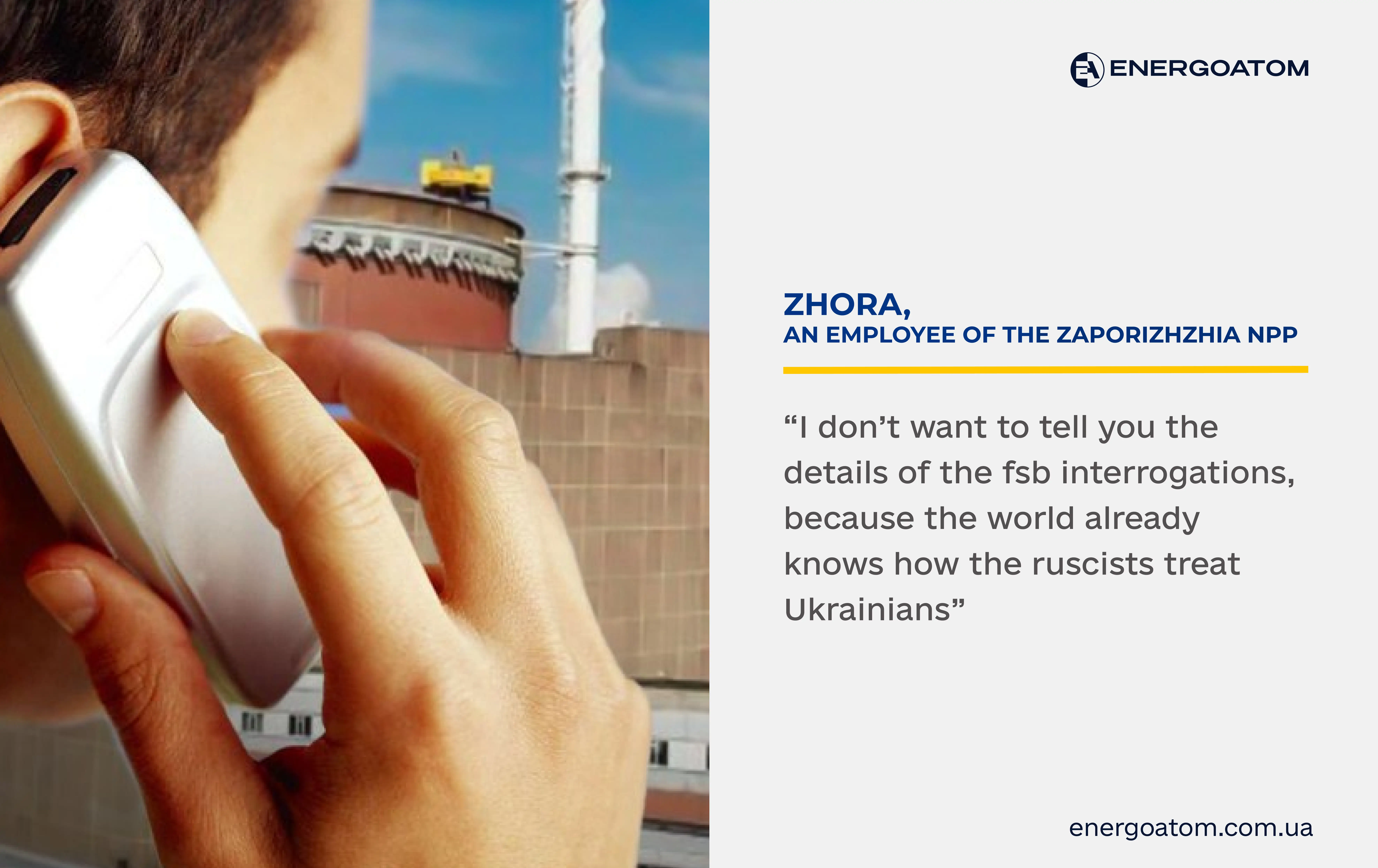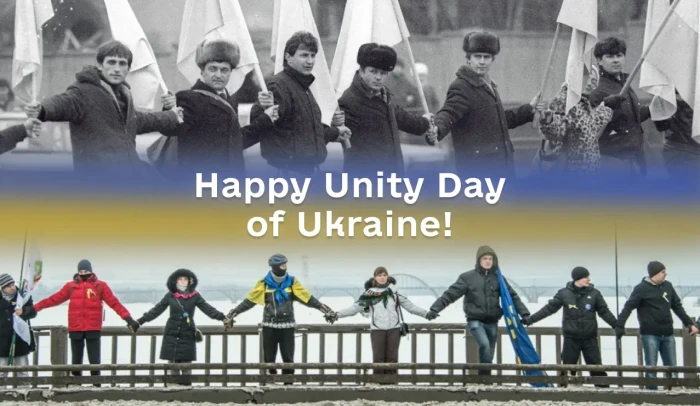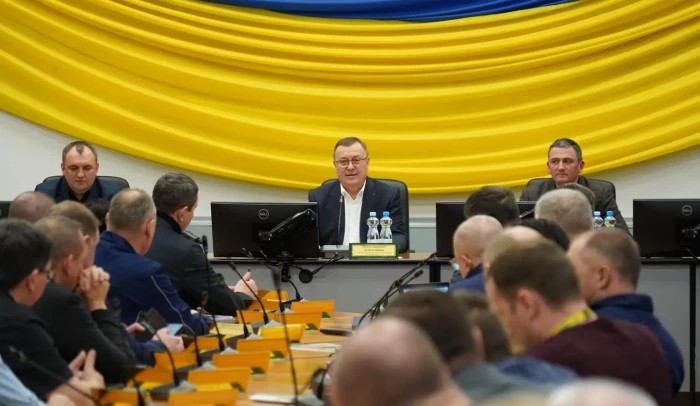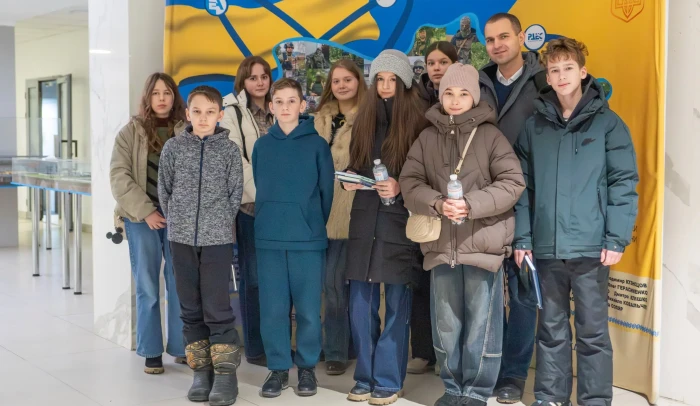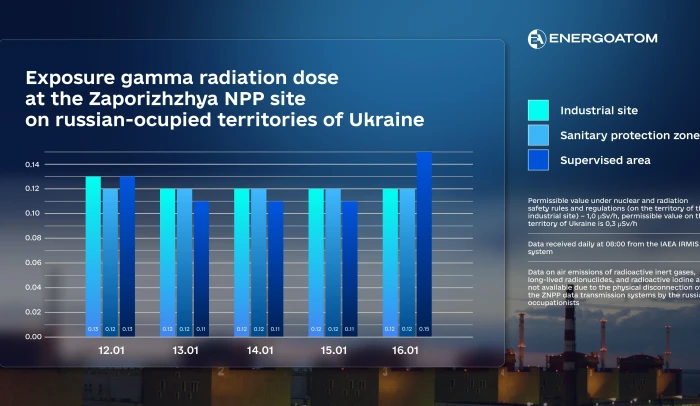Our today’s Guardian of the Light, we will call him Zhora, devoted 40 years of his life to working at the Zaporizhzhia NPP. Although he was born in Kharkiv, he loved Energodar with all his heart. There he built a successful career, created a lovely family and had a happy life. But then russia came…


“April 15, 2025 marked 40 years since I had crossed the threshold of the Zaporizhzhia NPP as a young specialist,” the nuclear employee recalls. “I started as a locksmith, a few years later I became a foreman, and later, an engineer. Before the war, I was not only dedicated to work, family and dacha (country cottage), but also to music. For 10 years, I played in the folk brass band in the Cultural Center. Later I joined a musical band established at the plant. It is currently unknown what happened to the band and instruments.”
Unfortunately, the russian-ukrainian war has broken more than one Ukrainian family. Therefore, since 2014, Zhora and his wife Nadia have had differences of opinion about the actions of the aggressor country. Since Nadia had many relatives in russia and spent almost every summer there as a child, the position of the “attacker-liberator” was more understandable to her than Zhora.
“Since 2014, my wife and I haven’t talked about the war,” the man explains. “And when russia came to Energodar, we reacted the same way: war is bad. At that time, our daughter was living in Kyiv so she asked to take her and her family home. She said that the capital was being under terrible missile attacks, so it was risky to stay there. In those days, Energodar stayed calm. To be honest, we were sure that no one would think of bombing a nuclear facility or even seizing a nuclear power plant.”




On February 24, 2022, Zhora draw his wife to work, and he himself went to Kyiv to pick up his daughter and son-in-law. At that time, he was on vacation and was able to pick up the children personally. On February 25, the whole family was together.
“Our children helped us a lot during the first months of the occupation,” the resident of Energodar shares. “While Nadia and I were at work, they had the possibility to go shopping, stand in lines, and buy products. Then the situation with groceries was bad. Therefore, when we came home, everything had already been bought. My daughter and son-in-law managed to leave Energodar only on June 15, 2022. I was not going to leave my hometown, I believed that just a step to go – and it would all be over. My wife believed the same. They called me Zhora Arestovych at work, because I assured everyone that it would be over in two or three weeks. But the war continued, and at the end of June I was summoned for questioning.”


Our Guardian survived three questioning sessions by the FSB. The first time in 2022, they talked in the police; and the next two times they hold questioning at home and in the field in 2023. The reason for such frequent “meetings” with the occupiers is the nuclear employee’s pro-Ukrainian position, as well as his unwillingness to get russian passport and sign a contract with rosatom.
“The first time I managed to avoid exceedingly cruel treatment,” the Ukrainian confesses. “I don’t want to go into details, because the whole world already knows how ruscists abuse Ukrainians. However, in 2022, they simply kept me “in the basement” for two weeks, and after that let me go to work. Nevertheless, the next year they tortured me, beat me with electric shocks, broke my ribs. They beat professionally so that there were no visible marks, but people could not sleep afterwards because of the pain. Then I realized that couldn’t go on – it was necessary to leave.”
Life in Energodar became increasingly difficult. Without russian passport, it was difficult to call an ambulance, see a doctor, or get a pharmacy prescription. Although the plant employees who had not signed a russian contract still received their salaries from Energoatom, it was difficult for them to use money. Rubles were the currency in the town, and currency exchangers had severe restrictions on money exchange. The last straw for Zhora was when his beloved Nadezhda signed a contract with rosatom.

“Someone posted the list of workers who had agreed to work for russia on the Telegram channel, and I saw my wife there,” the nuclear employee says. “I was shocked. The worst thing was that it happened after I had spent two weeks “in the basement,” where I was tormented by the ruscists.”
Zhora emphasizes that everything in a person’s life depends on upbringing and the values laid down in childhood. He was born and raised in Kharkiv, where russian language was spoken, but at the same time he was taught to love Ukraine. Nevertheless, his wife grew up where russian traditions were respected, that is why Nadia did not feel the arrival of russia on Ukrainian land as dramatically as her husband.
“Recently, I was turning the leaves of our old family album and found a photo of myself when I was four years old,” the Ukrainian shares. “There I am sitting, dressed in an embroidered shirt, in kindergarten. Now I am way older than 60. Does this photo say anything? Nadia is a wonderful person, but she had a different upbringing. Unfortunately, russia has broken up more than one family, and this is not only about spouses. I know cases when parents and children stopped communicating, it is very painful.”
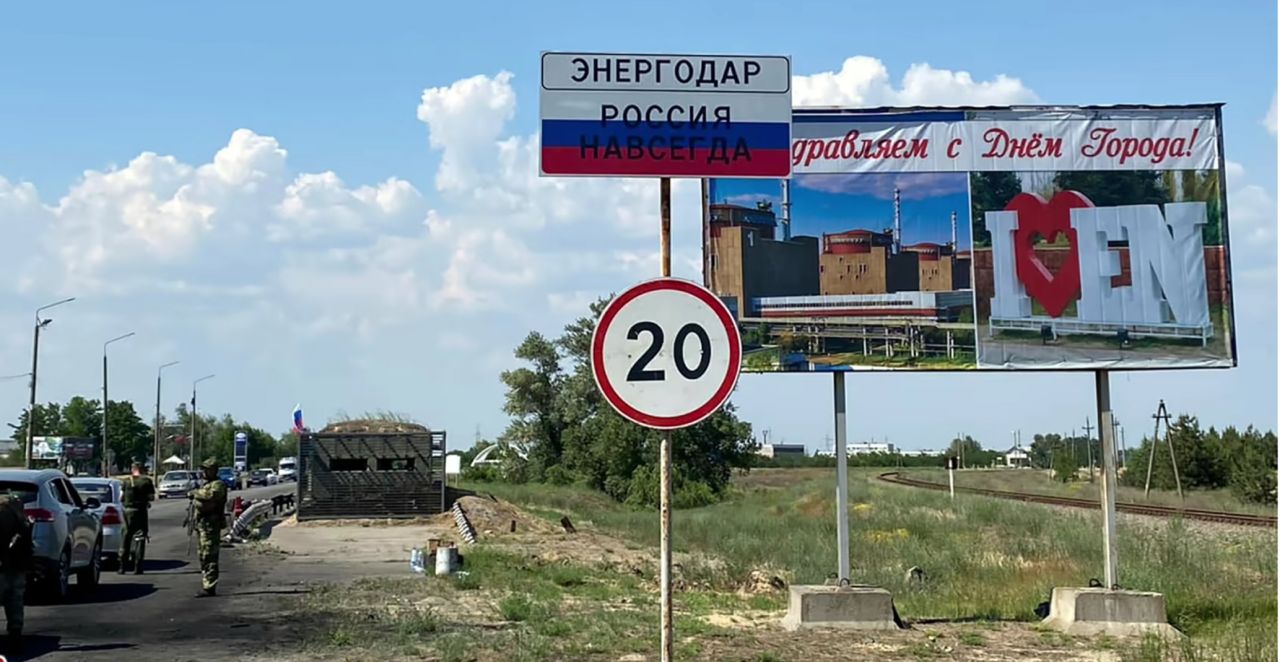
Desperate and frightened Ukrainians increasingly were leaving Energodar. The only way was east: through occupied Ukraine to russia, and then looping west to the Baltics, down through Poland and back to Ukraine. People posted exit tips and shared the best routes on Telegram channels, and guides charged several hundred euro to help Ukrainians be oriented at the checkpoints.
Therefore, one day, Zhora joined a small vehicle platoon setting its course to the east in his car. At the Energodar checkpoint, he said he was going to the seaside; at the checkpoint near Mariupol, he said he was going to visit his friends in russia. The vehicle platoon crossed the border without any incident and drove through Russia, Estonia, and Poland.
“When I crossed the border and saw the Ukrainian flag, I started crying,” the Guardian confessed. “Then I had to go to my native Kharkiv, a city that also suffered from ruscist attacks almost every day. My mother set the table with borscht, onions, and salo (cured slabs of fatback, rarely pork belly), and my sister brought home-distilled vodka from somewhere. In my native walls, I finally breathed freely and began to recover.”
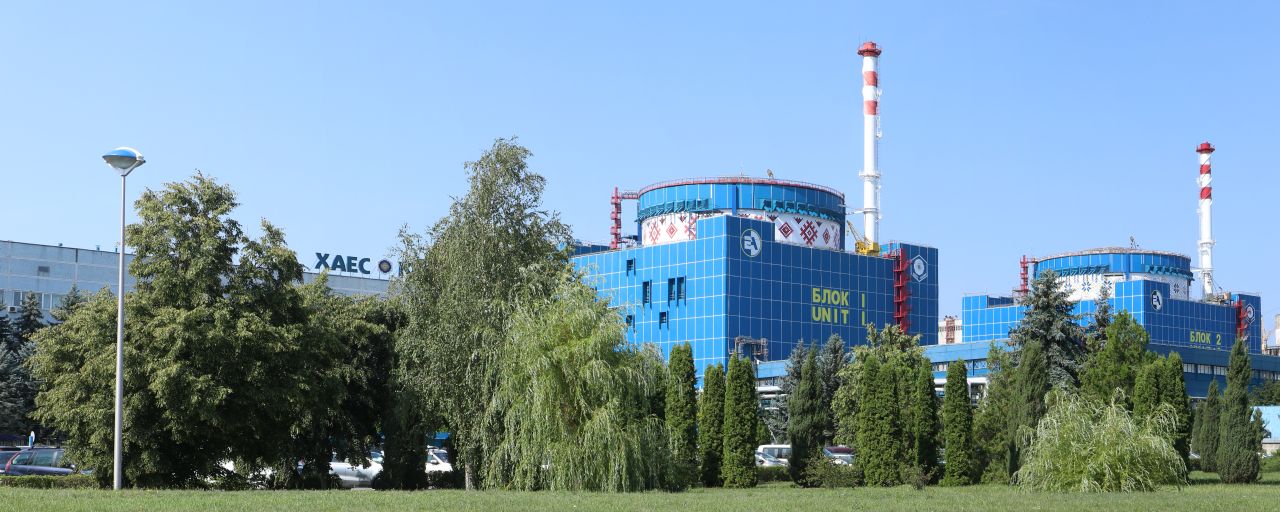
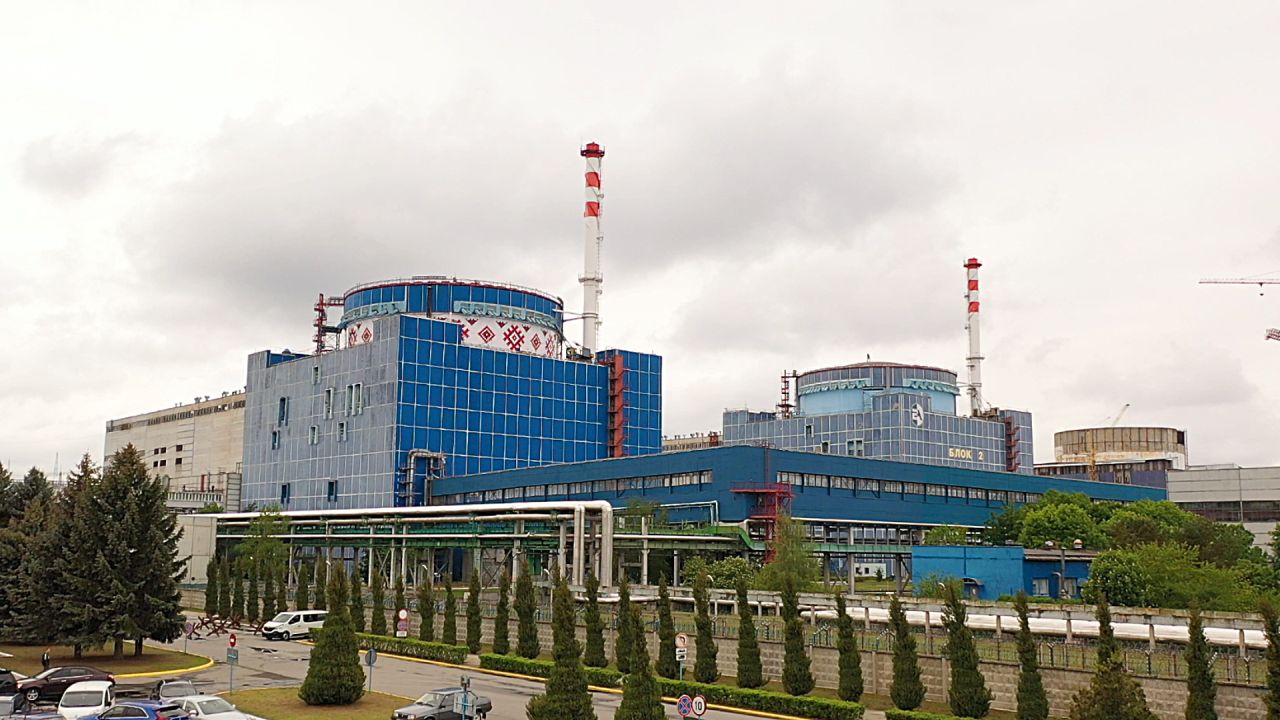
After some time, the nuclear employee was offered a job at the Khmelnytskyi Nuclear Power Plant to complete Units 3 and 4. He immediately agreed and never regretted that.
“Work at the KhNPP is very good for me,” Zhora shares. “To be honest, I don’t see any difference between this plant and the ZNPP, except for the language. However, I have never been embarrassed or bullied for my language. I myself try to communicate in Ukrainian, at work – always; and in everyday life, I still sometimes use russian, which I have spoken since childhood. During my work at the KhNPP, I managed to visit both Lviv and Odesa, and even went to rest on the Red Sea, for the first time in 60 years. But I have a dream to return to Energodar.”
Zhora assures Energodar residents who were also forced to leave their hometown that they will all definitely return home:
“Believe that we will return to our hometown. As the saying goes, love dies first, and faith and hope after that. We still have faith, love for the country remains, so there is hope that there is not much time left to wait. In the meantime, take care of yourself and your loved ones. I ask those who still remain in Energodar, but continue waiting for the Armed Forces of Ukraine: go strong and hold out to the end. Because Energodar is Ukraine! It was, is and will be!”
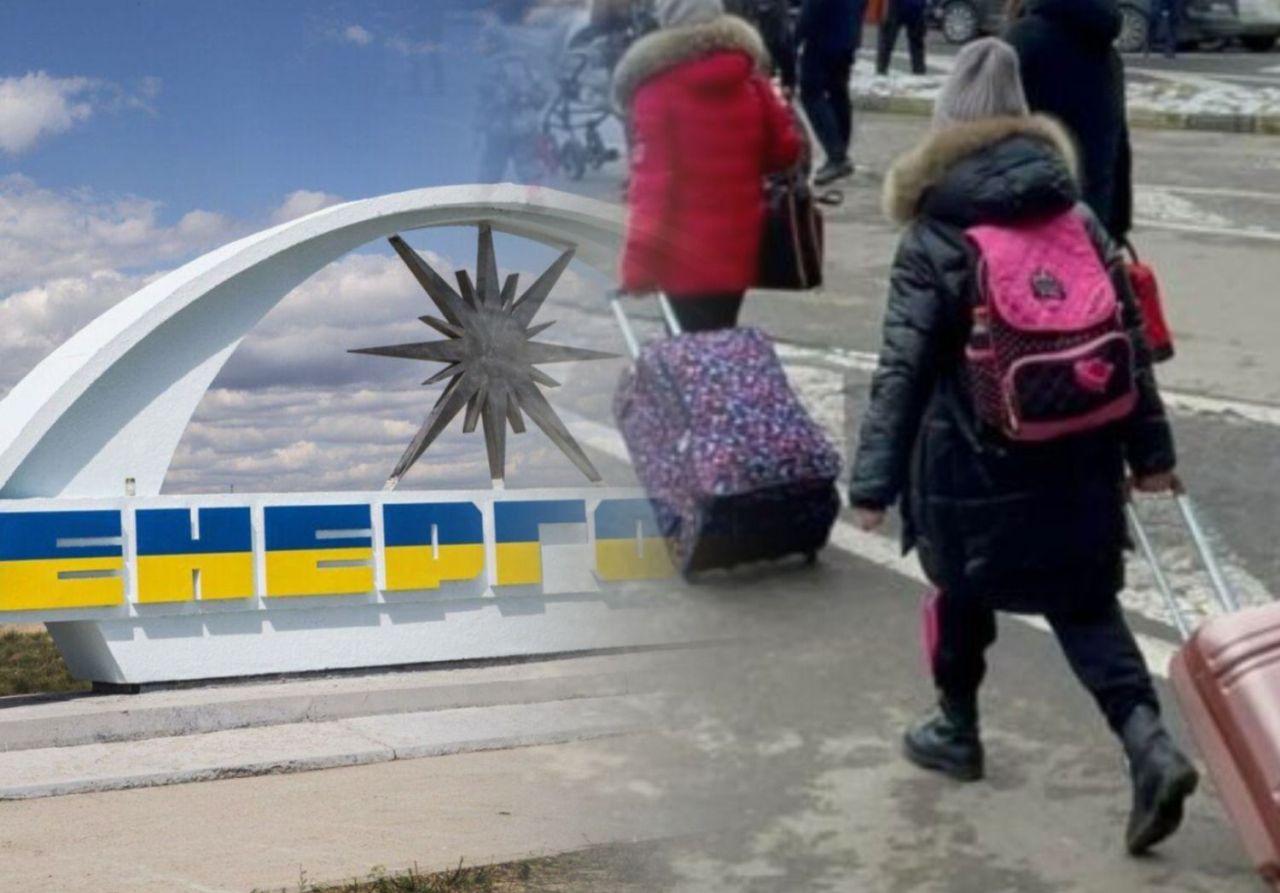
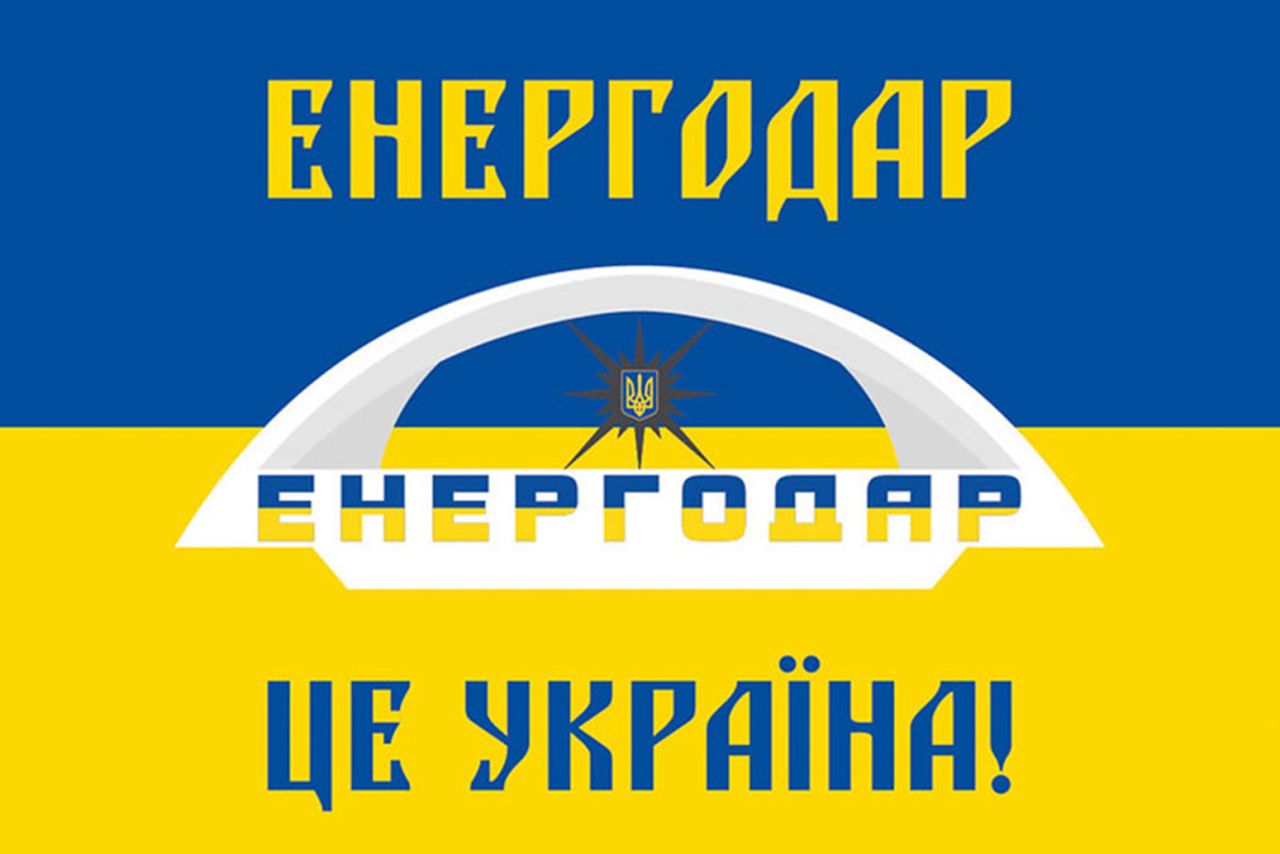
*some details have been changed to protect Zhora!
** photos from public sources are used in the text!
